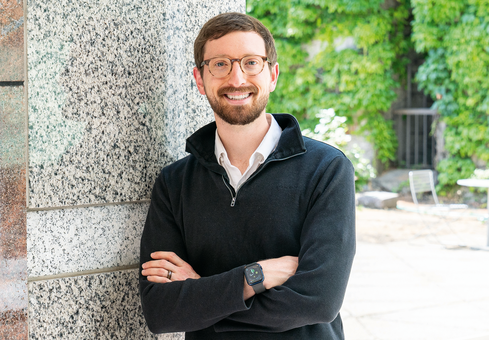2022 Finalist Kevin Guttenplan, Ph.D. Postdoctoral Scholar, Vollum Institute, Oregon Health & Science University, USA

Kevin Guttenplan received his bachelor’s degree in neuroscience and mathematics at Pomona College, where he worked with Dr. Karl Johnson on proteoglycan biochemistry and Dr. Amy Radunskaya on mathematical modeling of neuronal development. He then received his Ph.D. from Stanford University, working in the labs of Dr. Ben Barres and Dr. Aaron Gitler to study the role of astrocytes in diseases and injuries of the nervous system. Now in the lab of Dr. Marc Freeman at the Vollum Institute at OHSU, Kevin Guttenplan studies how astrocytes regulate neuronal circuits to change animal behavior.
Why Do Neurons Die?
Astrocytes are best known as support cells that help neurons survive, but they are also essential regulators of the nervous system response to disease and injury. In fact, astrocytes enter a state called “reactivity” during neurodegeneration and can become actively toxic. Could this explain why neurons die in disease? To answer this question, Kevin Guttenplan first characterized the signals that drive astrocytes to become reactive and showed that reactive astrocytes form in a range of human neurodegenerative diseases. Further, he developed a method to prevent reactive astrocyte formation, finding that it protected neurons from dying after injury and dramatically extended lifespan in a mouse model of amyotrophic lateral sclerosis (ALS). Finally, he purified a toxic lipid secreted from astrocytes that kills neurons and identified a lipid synthesis gene that, when inhibited, can reduce astrocyte toxicity. Together, this work yielded new tools to track astrocyte reactivity, demonstrated that astrocytes are neurotoxic in a broad range of diseases and injuries, and identified one specific mechanism by which astrocytes can kill neurons, providing new potential therapeutic targets for neurodegenerative disease.
For Kevin Guttenplan’s full essay, see Science online.
